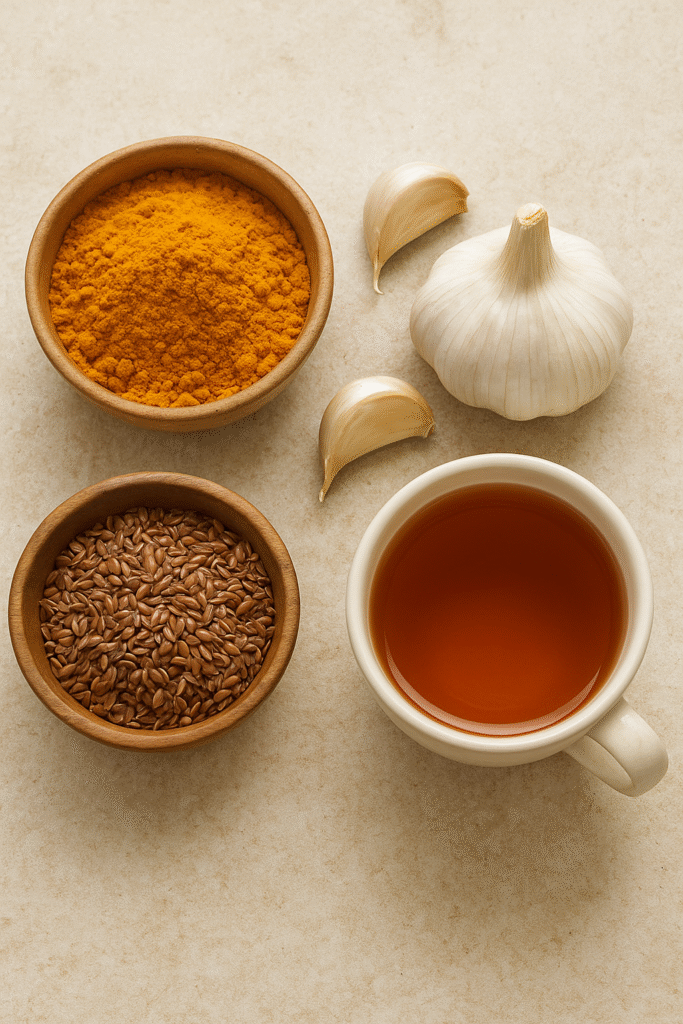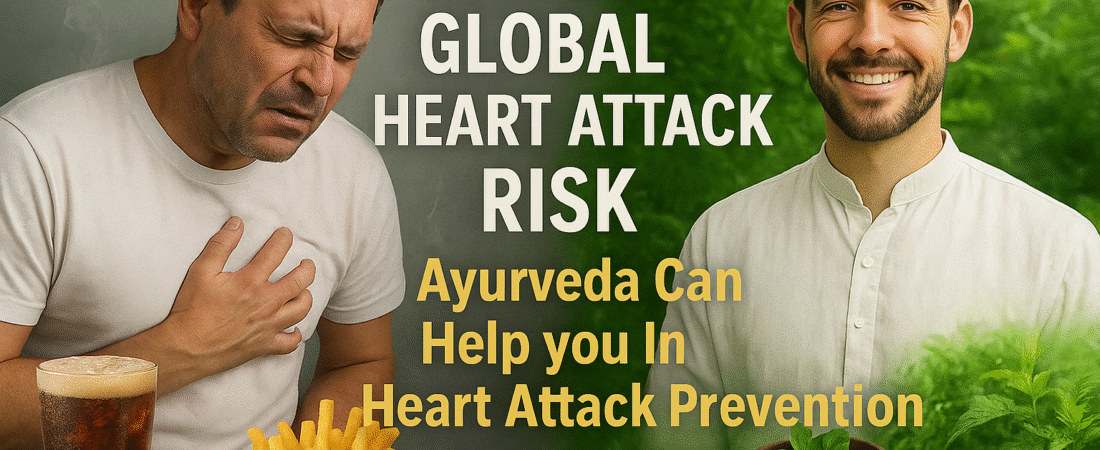Do you know that heart attack contributes to more than 19 million deaths across the globe every year?
The rise of heart attacks in India/the UK/the US/Canada is now spreading to young adults. Specific heart attack symptoms (India/UK/US/Canada) are chest pain, jaw pain, and shortness of breath.
The link between high blood pressure and heart attack makes high blood pressure a silent killer. But help is in hand – diet, life-style, and natural prevention of heart disease through Ayurveda.
Ayurvedic remedies for heart attack with Ayurvedic herbs for heart health provide prevention. You can try home remedies to prevent a heart attack, such as turmeric, garlic, and yoga.
Let’s Know Global Stats
In 2022, 19.8 million cardiovascular disease deaths worldwide were recorded, because heart attacks are a significant concern globally, according to the World Health Organization (WHO).
In India, the UK, the US, and Canada, heart attack symptoms are prominent emergency cases. Rising heart attack risk in India/the UK/the US/Canada has the identity of young adults in India who are experiencing the first beginning compared to the West.
In Western countries, the number is closed but is very high. The link between high blood pressure and heart attack emphasizes the contribution of high blood pressure, cholesterol, and diabetes.
These all-cause sensitivity despite age or geographical space. Cardiovascular disease statistics around the world identify essential causes such as stress, diet, and lack of physical activity.
Experts emphasize the natural prevention of heart disease by following a balanced life-style and diet. Ayurvedic remedies for a heart attack are traditionally suggested as supportive measures.

Promoting Ayurvedic herbs for heart health with dietary amendment may contribute to long-term health. Prevention needs to be inexpensive, natural, and durable within the population.
Understanding Heart Attack: Causes & Risk Factors
What Causes a Heart Attack – From Blocked Arteries to Life-style Triggers?
The main heart attack causes are blocked arteries through plaque buildup, known as atherosclerosis. Hypertension and high cholesterol speed this life-threatening process.
The link between high blood pressure and heart attack is well-documented because ongoing strain on the arteries weakens vessel walls. Diabetes makes it worse by raising sugar levels that destroy blood vessels. Stress brings about hormonal imbalances that increase heart strain and blood pressure. Smoking cuts off the flow of oxygen and physically harms the artery linings.
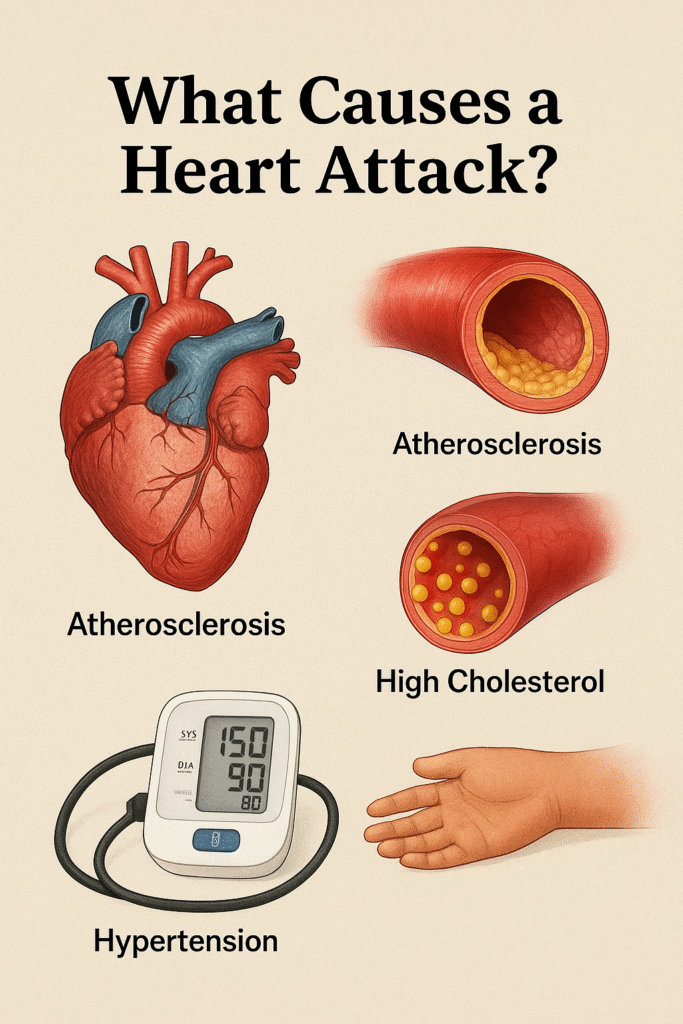
The risk of heart attack increases with excess weight, which brings on cholesterol imbalance and metabolic problems. Inactivity keeps blood from circulating properly and dilutes cardiovascular strength.
Terrible diet, excessive sugar, and processed foods also trigger artery clogging. These combined elements create a cycle that overloads the heart. Awareness of these threats emphasizes the importance of early prevention. Easy, natural prevention of heart disease with Ayurveda, herbs, and kitchen remedies provides practical protective measures.
Recognizing Symptoms & Emergency Awareness
Heart Attack Symptoms: When to Act Fast
Identifying heart attack symptoms in India and internationally can be lifesaving.
Traditional warning signs are pressure in the chest, pain radiating to the arm, and jaw pain.
Individuals may also have shortness of breath, cold sweat, nausea, or sudden dizziness.
Women tend to present with nonspecific symptoms like fatigue, indigestion, or back and jaw pain.
These variations highlight awareness as imperative for prompt action. Heart attack symptoms UK statistics point to the same risks, with most occurring early in the morning.
Globally, professionals emphasize recognition of emergency heart attack signs at once. In case of developing signs, emergency assistance should be contacted immediately.

Call 999 in the UK, 911 in the US or Canada, and 108/102 in India. Prompt reaction and early treatment considerably enhance survival prospects. Every second is precious when a heart attack occurs. Knowing the warning signs ensures quicker medical attention and less long-term damage to the heart.
Ayurvedic & Kitchen-Shelf Prevention Tips
Natural & Ayurvedic Remedies to Protect Your Heart
Applying Ayurvedic remedies for heart attack provides healthy, natural ways to improve heart well-being and short-term risk. Ayurveda focuses on a balanced diet, herbalism, and lifestyle for prolonged welfare.
Heart Attack
Ayurvedic Remedies
A. Herbs & Spices
Arjun Bark is a traditional heart tonic that nourishes the heart muscles when consumed as tea or pills. Turmeric has curcumin, an anti-inflammatory polyphenol that increases the blood vessel function when added to curry or golden milk. Garlic reduces LDL cholesterol and has a mild antiplatelet activity, primarily when it is crushed in raw or cooked form. Tulsi (holy basil) reduces stress and increases immunity; Drinking Tulsi tea daily is a skilled routine. Ashwagandha controls stress hormones, prevents heart stress; Advise doctors on taking thyroid medicine.
B. Kitchen-Shelf Foods
Kitchen remedies for heart health can be easily included in food. Linseed and chia seeds contain omega-3s that increase blood flow and reduce inflammation. Oats, millet, and barley are whole grains that reduce cholesterol levels through soluble fibers. Fresh fruits and berries, such as pomegranate, contain antioxidants that guard the arteries. Healthy fat from almonds, walnuts, and seeds should be consumed in moderation. Hibiscus tea has a natural effect on blood pressure and maintains vascular health.
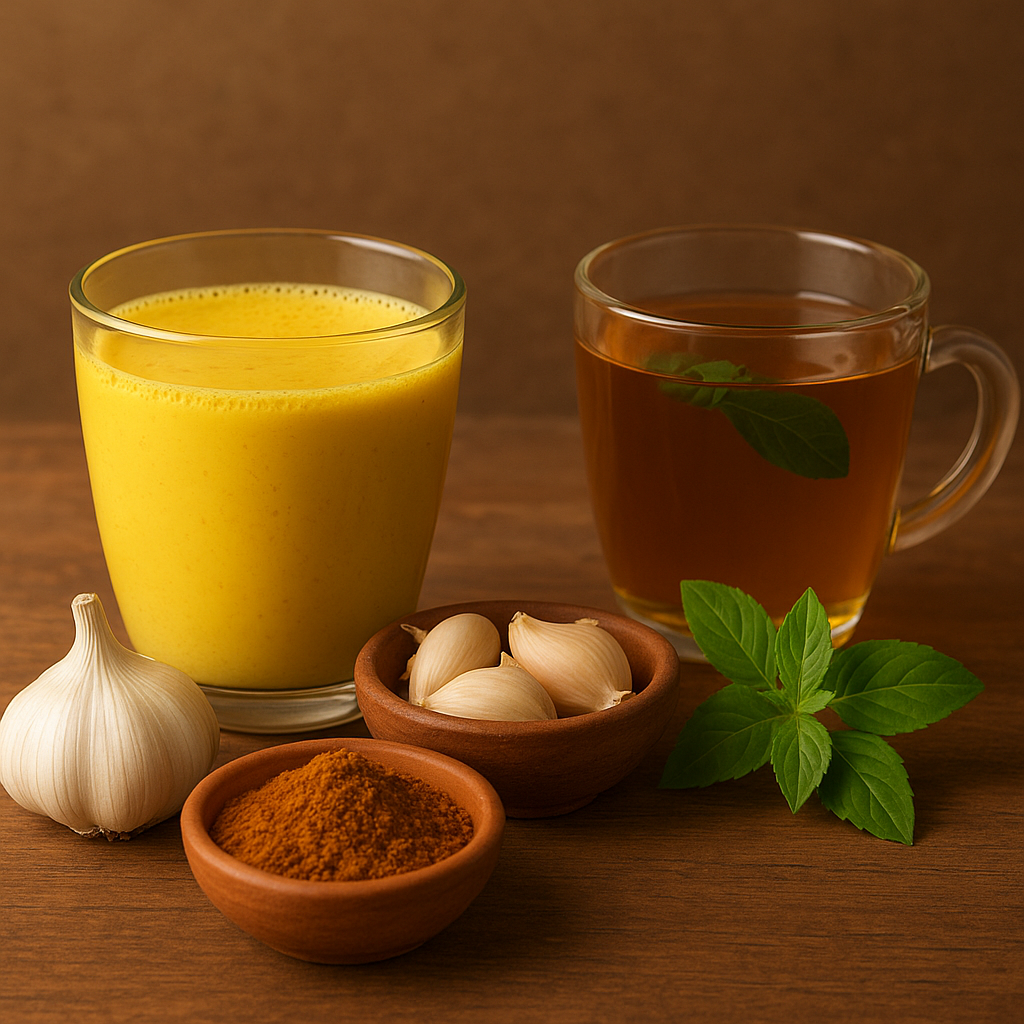
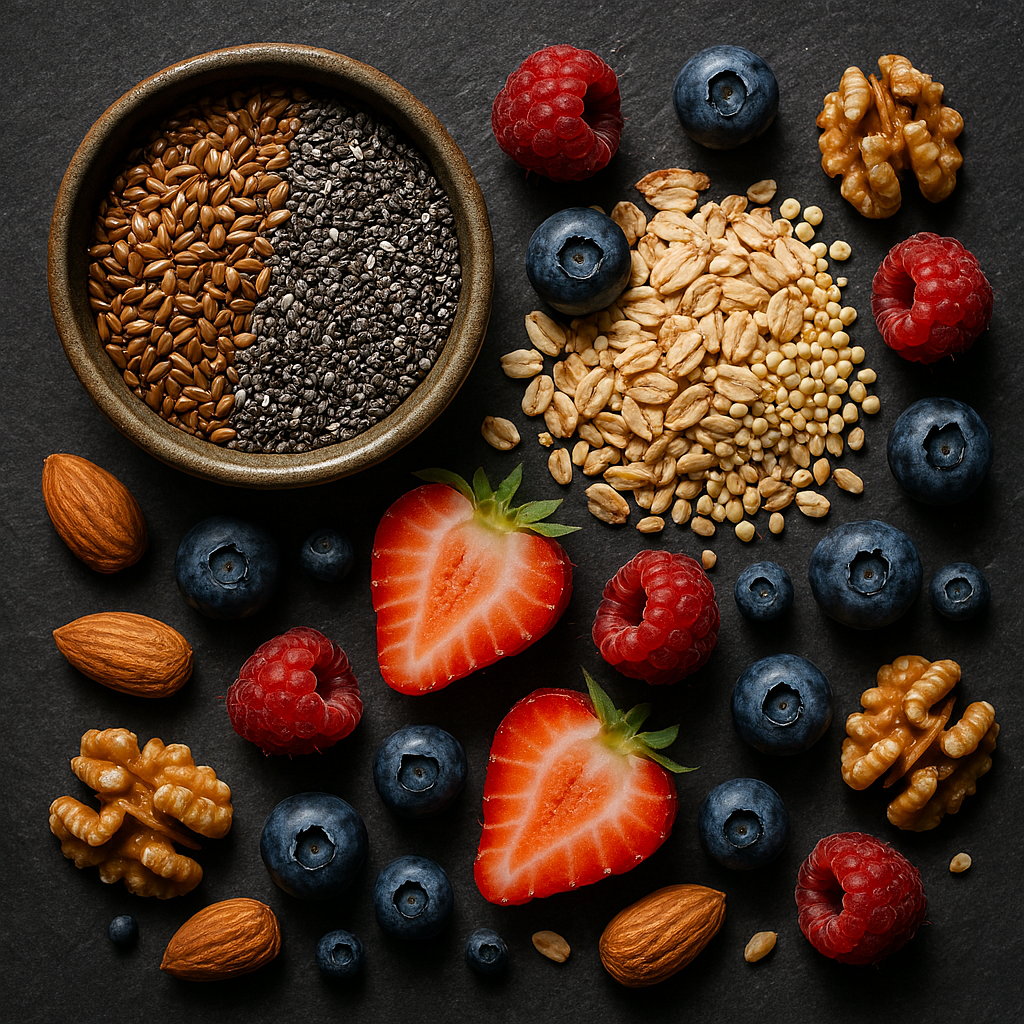
By integrating Ayurveda, eating habits, and lifestyle routine, individuals can create extensive protection for the heart and reduce future risks.

C. Life-style Ayurveda Integration
Natural prevention of heart disease also requires daily life alignment. Methods of pranayama, such as confusion and enulomes, reduce stress and increase nervous system function. Cutting salt intake causes hypertension; the Option of salt with cumin, coriander, or black pepper. Regular activity through brisk walking, yoga, and Surya Namskar strengthens the circulation. Stress management activities such as mindfulness, retiring quickly for bed, and sesame oil massage calm the nervous system.
Country-Specific Notes
Tailoring Prevention Across India, UK, US & Canada
In India, natural prevention tips focus on millets, arjuna tea, and turmeric-based cuisine to combat younger-onset heart attacks. Salt-rich diets require immediate diminution.
In the UK, practitioners point out how to prevent heart attacks by embracing the Mediterranean diet, garlic oil, oats, and nature walks to reduce stress. In the US, overconsumption of processed foods fuels danger, so Ayurveda for heart health US recommends flax smoothies, chia pudding, and anti-inflammatory spices.
In Canada, the same trends call for swapping packaged snacks with whole grains and antioxidant-containing fruits. Locally applied methods merging Ayurveda with nutrition benefit each nation. National recommendations from the NHS (UK), CADIAN (Canada), and Heart.org (US) offer additional prevention knowledge. Following these culturally tailored strategies supports holistic cardiovascular wellness globally.
FAQs
1. Can Ayurvedic remedies replace my prescription medicine?
No, Ayurvedic remedies’ safety indicates they are complementary, not substitutes. Always check with your physician before mixing with prescriptions.
2. How much turmeric or garlic should I consume daily?
Employ ½–1 teaspoon of turmeric in food or golden milk. One clove of garlic daily is enough, but take medical recommendations.
3. Is Arjuna safe for everyone?
Arjuna is safe mainly in moderate amounts. Avoid during pregnancy or with blood thinners except with a doctor’s approval.
4. How soon can I see heart health improvement?
Heart attack prevention timing is different. Regular diet and lifestyle modification may reveal improvements such as decreased cholesterol within 4–12 weeks.
Call to Action
Take Action Now for a Healthier Heart
